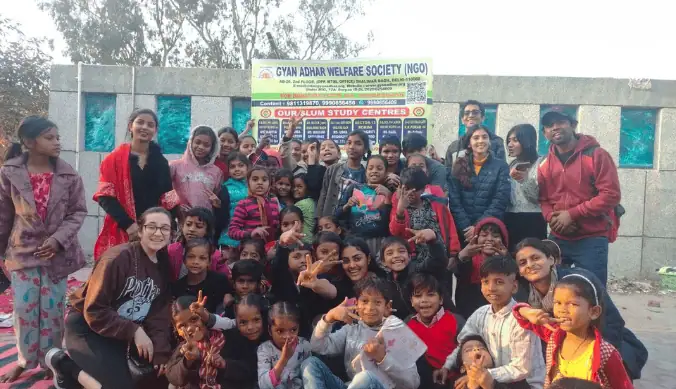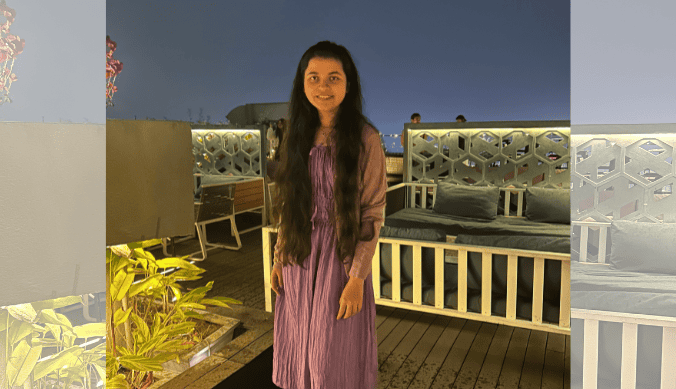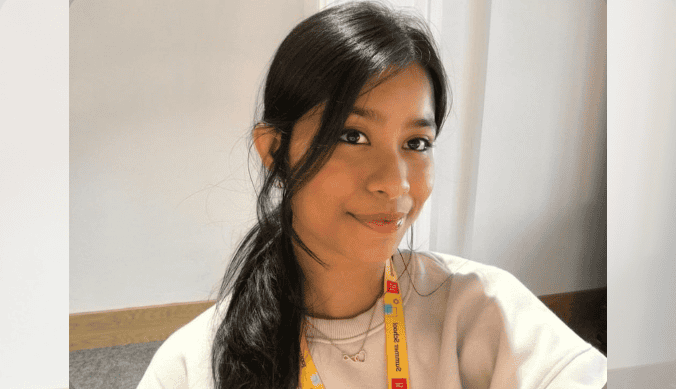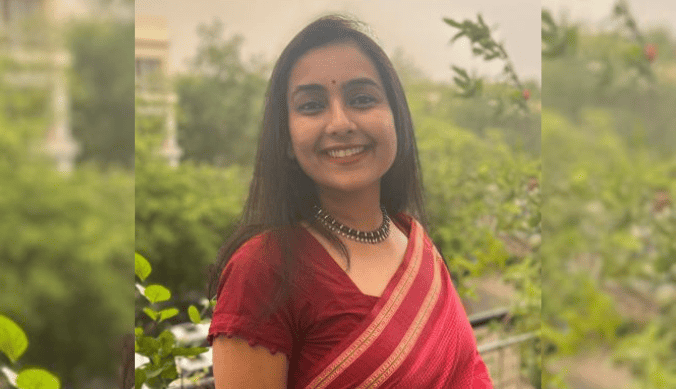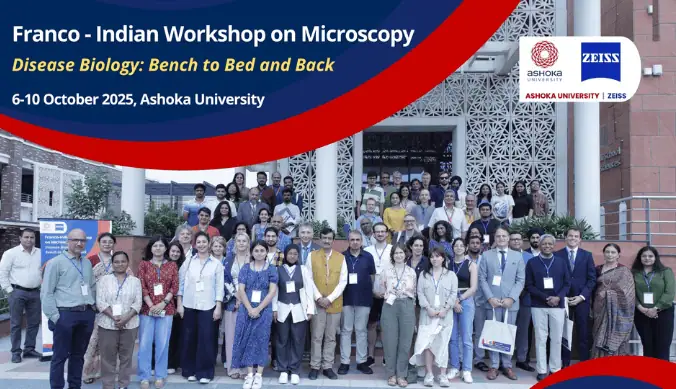‘A Song Called Teaching’: CWC’s Annual Conference 2025
Reimagining the Classroom: Voices, Visions, and Pedagogical Possibilities
The Centre for Writing and Communication (CWC) took inspiration for the title of this year’s annual conference from the book ‘A Song Called Teaching: Ebbs and Flows of Experiential and Emphatic Pedagogies’ (2019, Delhi: Aakar Books), edited by Honey Oberoi Vahali. The book, featuring insights from the teachers at Dr BR Ambedkar University, Delhi (AUD), informed our approach to exploring the complexities of teaching in an ever-changing education landscape. Through this introspective lens, we aimed to amplify diverse voices in academia, both in terms of ideas and disciplines.
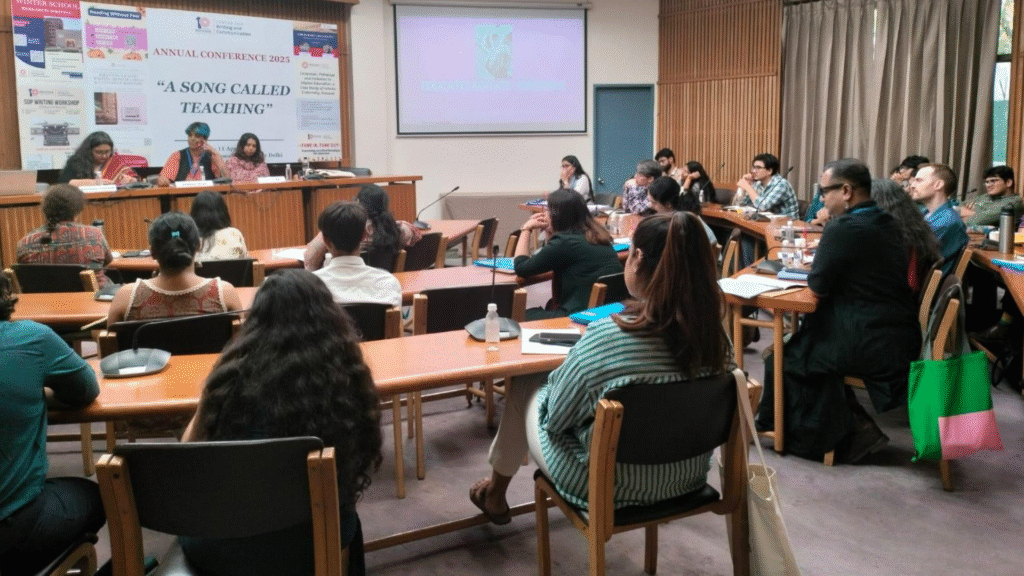
The enthusiastic response to the CFP, marked by the 111 submissions, foregrounded the urgency of discussions on pedagogy and allowed us to curate 19 abstracts that delved into questions of teaching widely and deeply. The conference spanned 2 days and 8 panels, including a coveted Keynote address by Professor Padma Sarangapani (TISS, Mumbai), who urged rethinking the frameworks used to teach heterogeneous classrooms to promote more equitable and productive interactions. This commitment was carried forward by the participants, who joined from institutions across the country – including IIM Kozhikode, BPS Women’s University Sonepat, NLSIU Bangalore, FLAME University Pune and TISS Guwahati, CEPT University, among many others – as panellists and attendees alike. The conversations that ensued were as interdisciplinary as they were grounded in practice.
The diversity of the participants extended to their academic vantage points as well, leading to discussions on radical interventions in education through queer, feminist, Dalit, Marxist and decolonial pedagogies. While theory formed the basis of the papers, it was constantly complemented by personal experiences, prioritising situated knowledge and multivocality over a monolithic understanding of pedagogy.
We covered topics ranging from the classroom’s materialisation as a community to the importance of a teacher’s positionality in reconfiguring a learning environment. Our commitment to discourse and learning was reflected in the design of the conference, which was held at IIC Delhi and was open to all. This resulted in vibrant dialogue between the panellists, moderators, and audience members, thereby facilitating educational and invigorating conversations.
The panellists presented actionable teaching strategies, including Simrita and Priyanka Chhaparia, who promoted bricolage as a creative framework for knowledge building and adaptation, and Dr Swati Chawla, who spoke about instilling elements of care within the curriculum of her course “Tibetans in India”. Furthermore, Dr Ashna Singh delved into the use of profane language to challenge the dichotomy of purity-impurity to explore themes within caste and law, and Dr Kush Patel delineated their approach in digital archiving to further inclusive thought. Parallely, multiple presentations posed questions that were geared towards rendering visible the challenges faced in differently positioned classroom settings and critically examining ways to navigate the same. These included Dr NA Jacob’s meditation on affect within the classroom, Dr Yengkhom Jilangamba’s approach to aiding internal and external dialogue within a militarised climate and Dr Sreeparna Chattopadhyay’s deliberation on embedding feminist thought within the classroom, among others. Rather than seeking definitive answers to the challenges of teaching, discussions emphasised questioning and embraced diverse experiences that reimagined pedagogy as an evolving practice.
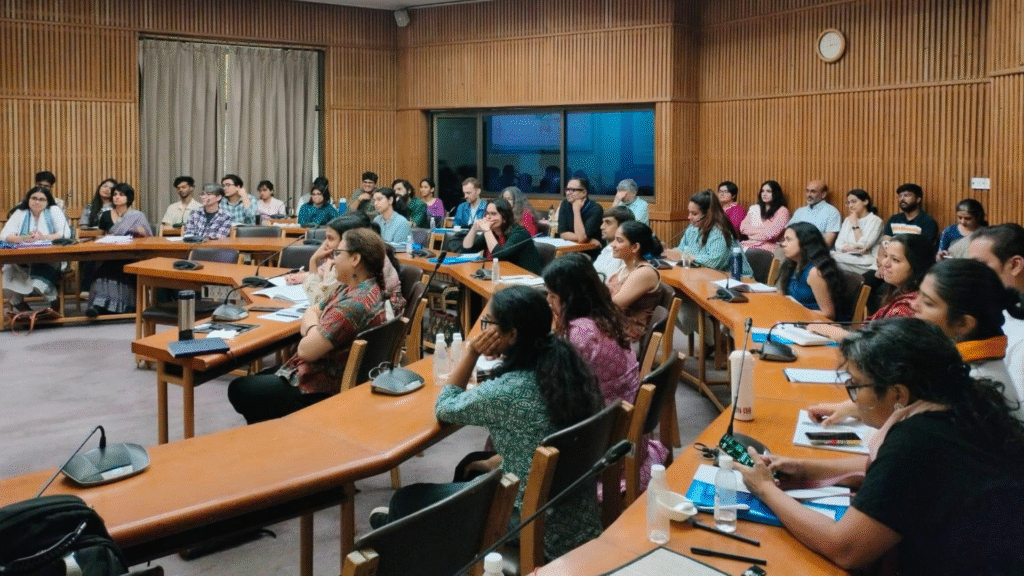
The conference’s driving values are well reflected in the following participants’ remarks:
- “The presenters addressed a range of pedagogical issues currently faced by Indian universities.” – Dr Randheer Kour, Government College for Women, Jammu
- “This was a rare conference that celebrated and discussed every dimension of teaching.” – Dr Sreeparna Chattopadhyay, Manipal University, Bangalore.
- “The conference was exceptionally well-organised – not only in its thoughtful choice of location in Delhi but also in its commitment to diversity – creating a rich space for meaningful conversations.” – Deepti Sreeram K, Ashoka University, Sonepat.
- “The conference did some splendid work on bringing together diverse panels that represented voices across gender, caste, class and religion. It was a refreshing change where something as universal as teaching was examined, not as a neutral body of knowledge, but as an experience and process which is as alive and breathing as the humans who enact it in learning spaces.” – Simrita, Indian School of Development Management, Noida.
CWC’s annual conferences have brought together teachers, students, activists, policy makers and researchers onto a common platform to discuss issues common to higher education in India. Our past conferences include ‘Reflections on Writing’ (2018), ‘Inclusive Pedagogies: Teaching & Learning Practices in Higher Education in India’ (2019), ‘Challenges/Strategies in Teaching English for Academic Purposes (EAP) in Higher Education in India’ (2021), ‘Writing Data: Interdisciplinary Perspectives’ (2023), ‘Language, Pedagogy & Inclusion in Higher Education: A Case Study of Ashoka University’ (2024).
Written by Soumya Vats, Writing Tutor, Centre for Writing & Communication, Ashoka University
Study at Ashoka








